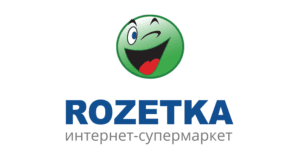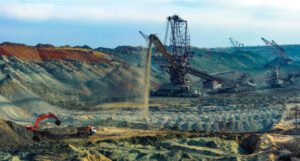
The largest Ukrainian online retailer Rozetka is ready to provide its warehouses to companies for storing their goods, the retailer’s press service reported.
“Due to hostilities, many of our colleagues lost warehouses where they could safely store their goods, and were forced to urgently evacuate them and look for new storage areas. We are ready to help and provide our logistics centers,” said Rozetka co-founder Vladyslav Chechetkin.
He emphasized that the most modern safety standards and sanitary and hygienic norms are observed in the logistics centers.
“Our warehouses are equipped with powerful IT infrastructure and alternative energy sources. We will be happy to work together!” – added Chechetkin.
As noted in the release, previously only marketplace sellers could use this service. For now, the service is available at warehouses in Kyiv and Lviv. The term of storage of goods is not limited.
Rozetka was founded in 2005 in Kyiv by Vladyslav and Iryna Chechetkin as an online electronics and household appliances store. In the following years, the company transformed into a multi-category online marketplace. As of August, 242 Rozetka points are operating in 71 settlements of Ukraine. The company opened stores in the de-occupied territories of Kyiv region, in particular, in Buche and Irpen

PrJSC Pokrovsky Mining and Processing Plant (PGOK, Dnipropetrovsk region) in January-June of this year saw a net loss of UAH 37.438 million compared to a net profit of UAH 55.980 million a year earlier.
According to the company’s interim report published in the information disclosure system of the National Securities and Stock Market Commission, over this period its net income decreased by 45.3%, to UAH 828.048 million.
Retained earnings by the end of June this year reached UAH 1.366 billion.
Pokrovsky Mining and Processing Plant is the largest producer of manganese ore in Ukraine, which is mining it in an open way.
Four Cypriot companies, namely Profetis Enterprises Limited, Exceed Investmens Limited, Clemente Enterprises Limited and Alexton Holdings Limited own 24.3024% of the shares of the company
The charter capital of the plant is UAH 736.134 million, the par value of the share is UAH 0.25.

Head of the Office of the President of Ukraine Andriy Yermak and US National Security Adviser Jacob Sullivan agreed on the need to organize a conversation between Ukrainian and US Presidents Volodymyr Zelensky and Joseph Biden in the near future.
Yermak, Foreign Minister Dmitry Kuleba and Commander-in-Chief of the Ukrainian Armed Forces Valeriy Zaluzhny had a telephone conversation with Sullivan, US Secretary of State Anthony Blinken and US Presidential Adviser on National Security Affairs Sullivan, according to the website of the Ukrainian head of state on Monday. They informed the American side about the operational situation and the needs of the Ukrainian army.
Yermak, Kuleba and Zaluzhny noted the significant contribution of the United States to strengthening the defense capability of Ukraine, the message emphasizes.

In July of this year, Ukraine managed to export 3.0 million tons of agricultural products, bypassing its seaports, the key export infrastructure of the country, now blocked by Russian troops.
Export growth last month was 12% compared to June 2022, according to the Facebook page of the Ukrainian Club of Agrarian Business Association (UCAB) on Monday.
In terms of crops in July, grain exports amounted to 1.7 million tons (corn – 69%, wheat – 22%, barley – 9%), having increased by 21% compared to June.
According to the UCAB, in July Ukraine exported 597.2 thousand tons of oilseeds (sunflower seeds – 61%, rapeseed – 19%, soybeans – 9%), which is 7% more than the previous month. At the same time, the same amount of vegetable oil was exported as in June – 297.1 thousand tons, of which 94% is sunflower oil and 6% is soybean.
Export of sunflower and soybean cake and meal in July amounted to 185.9 thousand tons (sunflower – 85%, soybean – 15%), which corresponds to an increase of 34% compared to June.
Thus, last month, grain crops showed the largest growth volumes, the export of which increased by almost 300 thousand tons over the month. There was also a partial change in the structure of grain exports – an increase in the share of wheat and barley compared to previous periods, which is associated with the harvesting of these crops by Ukraine and, accordingly, an increase in supply.
“Although there is a positive trend in exports, prices for grain crops in the domestic market continue to decline. They are being pressured by an excess supply of both the last year’s crop and the arrival of a new crop at a significantly lower export growth rate,” the UCAB said in a statement.
As reported, before the start of the full-scale military invasion of the Russian Federation, Ukraine monthly exported 5-6 million tons of agricultural products through its key seaports in Odessa and Nikolaev.
PrJSC “Druzhkovka Metal Products Plant” (DZMI, Donetsk region) by 2021 increased its net profit three times compared to 2020 – up to UAH 109 million 631.667 thousand from UAH 35.840 million.
According to the agenda of the general meeting of shareholders scheduled for September 1 of this year, shareholders are invited to decide on the payment of dividends for 2021 in the amount of UAH 1.64 per share (total – UAH 108 million 984.520 thousand), leaving the rest of the profit undistributed.
The meeting will be held remotely.
At the same time, the DZMI previously announced a meeting on March 17, 2022, but it did not take place. At that time, shareholders were offered to pay dividends in the amount of UAH 0.45 per share (total – UAH 29.904 million), and to direct the rest of the net profit for reinvestment for further technical re-equipment in order to ensure the production of competitive products.
The shareholders also intend to approve a new version of the charter, preliminarily approve major transactions, and approve reports for 2021.
Retained earnings at the end of 2021 amounted to UAH 479.817 million.
The Druzhkovsky hardware plant produces machine-building and railway fasteners.
According to the NDU for the fourth quarter of 2021, an individual Alexey Spiridonov owned 14.9949% of the company’s shares, Elena Mishchenko-Solona (resident of Spain) – 13.0304%, Irina Mishchenko – 24.5167%, Sergey Popkov – 5.8611 %, Anton Malikov – 9.75%, Elena Malikova – 8.25%, Valery and Dmitry Malikov – 9.774% each.
The authorized capital of the enterprise is UAH 3.323 million.